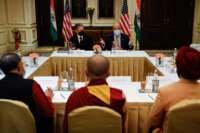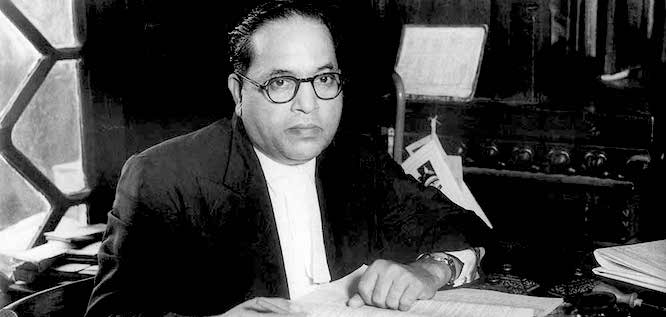A screengrab of a YouTube video from TV9 Kannada featuring Karnataka chief minister Siddaramaiah is being widely shared on social media with users drawing attention to its title. It says: “I Will Share Wealth Of The Nation To Muslims: CM Siddaramaiah”.
BJP supporters and Right Wing influencers are sharing the clip in response to the criticism by the Congress camp of Prime Minister Modi’s speech at a public meeting in Rajasthan’s Banswara on April 21. In his address, the PM stated that the Congress manifesto had promised wealth redistribution among Muslims. He further claimed that former Prime Minister Dr Manmohan Singh had in 2006 said that the “first claim on nation’s resources” was of the Muslims. Alt News has fact-checked this claim here.
Subsequently, PM Modi was heavily criticized by the Opposition.
Premium subscribed X (formerly Twitter) user BhikuMhatre (Modi’s Family) (@MumbaichaDon) shared the above-mentioned image on April 22 reasserting that Congress wanted to take the wealth of the Hindus to distribute it to the Muslim community.
Throw this in face of Every Liberal & Every Piddi who was arguing that CONgress Menifesto doesn’t mention “Mu$£ims” specifically & it includes SC/STs Also.
CONgress WANTS TO TAKE AWAY WEALTH FROM HINDUS & DISTRIBUTING TO MU$£IMS “ONLY” AS IT HATES HINDUS INCL. SC/STs. pic.twitter.com/6JZn00XEfz
— BhikuMhatre (Modi’s Family) (@MumbaichaDon) April 22, 2024
Another premium subscribed X user, Mr Sinha (Modi’s family) (@MrSinha_) who has been found by Alt News spreading communal misinformation several times in the past, shared the viral image and mentioned in his caption: “PM Modi wasn’t lying……” His tweet has received close to 7.5 Lakh views and has been retweeted over 8,600 times.
PM Modi wasn’t lying…… pic.twitter.com/Qq43xezbgp
— Mr Sinha (Modi’s family) (@MrSinha_) April 22, 2024
Several other users associated with the BJP and members of the Right-Wing ecosystem shared the same image claiming that what PM Modi had said about Congress’ wealth redistribution plans was true.
Click to view slideshow.Fact Check
We searched for the video in question on TV9 Kannada’s YouTube channel and found that it was published on December 3, 2023. At the 0.46 mark of the video, one can find Siddaramaiah’s original speech given in Kannada. We translated the Karnataka CM’s speech from Kannada to English. He said:
“The previous government did less than what was done when I was there. But again, I have worked to increase it again this year, because I came to power in the middle of this year. But from next year I will ensure giving more because you also need to get an education, and religious centres should be developed to practice your religion. You too should get a share in the wealth of this country. You are also Indian right… This country should belong to you and us. The wealth of this country belongs to you and belongs to us, so I will work to distribute the wealth of this country to you too. In this case, I will say one thing you will not be treated unfairly for any reason. I work to protect you. Similarly, I work to protect people belonging to all religions and castes”.
Siddaramaiah made the remarks after inaugurating the South India convention of Muslim religious heads ‘Aluad-E-Gouse-E-Azam Conference’ at Dargah Hazrat Badshah Peeran of Pale village on the outskirts of Hubballi on December 4, 2023. He had also announced increasing the allocation to minorities welfare department from the existing Rs 4,000 crore to Rs 10,000 crore. His statements sparked a row as BJP and JD(S) described it as appeasement and vote-bank politics and demanded an explanation from the CM on how he could make a promise with such huge financial implications at a private event when the legislature was in session.
It is clear from the above translation that Siddaramaiah was not talking about giving doles to any one community. His words, “his country should belong to you and us. The wealth of this country belongs to you and belongs to us, so I will work to distribute the wealth of this country to you too” and “I work to protect you. Similarly, I work to protect people belonging to all religions and castes” belie the claims being made on social media that the Karnataka CM had pledged that he would take the wealth of the Hindus to distribute it to the Muslim community. In reality, he spoke about an equitable distribution of the wealth of this country and everyone getting their rightful share irrespective of caste and religion.
The title of the TV9 Kannada video on YouTube, too, is misleading.
The post Siddaramaiah’s pledge of equitable distribution of wealth irrespective of caste and religion amplified falsely appeared first on Alt News.
This content originally appeared on Alt News and was authored by Oishani Bhattacharya.
This post was originally published on Radio Free.




